Anshuman Chhabra
First is Not Really Better Than Last: Evaluating Layer Choice and Aggregation Strategies in Language Model Data Influence Estimation
Nov 06, 2025Abstract:Identifying how training samples influence/impact Large Language Model (LLM) decision-making is essential for effectively interpreting model decisions and auditing large-scale datasets. Current training sample influence estimation methods (also known as influence functions) undertake this goal by utilizing information flow through the model via its first-order and higher-order gradient terms. However, owing to the large model sizes of today consisting of billions of parameters, these influence computations are often restricted to some subset of model layers to ensure computational feasibility. Prior seminal work by Yeh et al. (2022) in assessing which layers are best suited for computing language data influence concluded that the first (embedding) layers are the most informative for this purpose, using a hypothesis based on influence scores canceling out (i.e., the cancellation effect). In this work, we propose theoretical and empirical evidence demonstrating how the cancellation effect is unreliable, and that middle attention layers are better estimators for influence. Furthermore, we address the broader challenge of aggregating influence scores across layers, and showcase how alternatives to standard averaging (such as ranking and vote-based methods) can lead to significantly improved performance. Finally, we propose better methods for evaluating influence score efficacy in LLMs without undertaking model retraining, and propose a new metric known as the Noise Detection Rate (NDR) that exhibits strong predictive capability compared to the cancellation effect. Through extensive experiments across LLMs of varying types and scales, we concretely determine that the first (layers) are not necessarily better than the last (layers) for LLM influence estimation, contrasting with prior knowledge in the field.
LayerIF: Estimating Layer Quality for Large Language Models using Influence Functions
May 27, 2025Abstract:Pretrained Large Language Models (LLMs) achieve strong performance across a wide range of tasks, yet exhibit substantial variability in the various layers' training quality with respect to specific downstream applications, limiting their downstream performance.It is therefore critical to estimate layer-wise training quality in a manner that accounts for both model architecture and training data. However, existing approaches predominantly rely on model-centric heuristics (such as spectral statistics, outlier detection, or uniform allocation) while overlooking the influence of data. To address these limitations, we propose LayerIF, a data-driven framework that leverages Influence Functions to quantify the training quality of individual layers in a principled and task-sensitive manner. By isolating each layer's gradients and measuring the sensitivity of the validation loss to training examples by computing layer-wise influences, we derive data-driven estimates of layer importance. Notably, our method produces task-specific layer importance estimates for the same LLM, revealing how layers specialize for different test-time evaluation tasks. We demonstrate the utility of our scores by leveraging them for two downstream applications: (a) expert allocation in LoRA-MoE architectures and (b) layer-wise sparsity distribution for LLM pruning. Experiments across multiple LLM architectures demonstrate that our model-agnostic, influence-guided allocation leads to consistent gains in task performance.
Unraveling Indirect In-Context Learning Using Influence Functions
Jan 01, 2025



Abstract:This work introduces a novel paradigm for generalized In-Context Learning (ICL), termed Indirect In-Context Learning. In Indirect ICL, we explore demonstration selection strategies tailored for two distinct real-world scenarios: Mixture of Tasks and Noisy Demonstrations. We systematically evaluate the effectiveness of Influence Functions (IFs) as a selection tool for these settings, highlighting the potential for IFs to better capture the informativeness of examples within the demonstration pool. For the Mixture of Tasks setting, demonstrations are drawn from 28 diverse tasks, including MMLU, BigBench, StrategyQA, and CommonsenseQA. We demonstrate that combining BertScore-Recall (BSR) with an IF surrogate model can significantly improve performance, leading to average absolute accuracy gains of 0.37\% and 1.45\% for 3-shot and 5-shot setups when compared to traditional ICL metrics. In the Noisy Demonstrations setting, we examine scenarios where demonstrations might be mislabeled. Our experiments show that reweighting traditional ICL selectors (BSR and Cosine Similarity) with IF-based selectors boosts accuracy by an average of 2.90\% for Cosine Similarity and 2.94\% for BSR on noisy GLUE benchmarks. In sum, we propose a robust framework for demonstration selection that generalizes beyond traditional ICL, offering valuable insights into the role of IFs for Indirect ICL.
Assessing LLMs for Zero-shot Abstractive Summarization Through the Lens of Relevance Paraphrasing
Jun 06, 2024
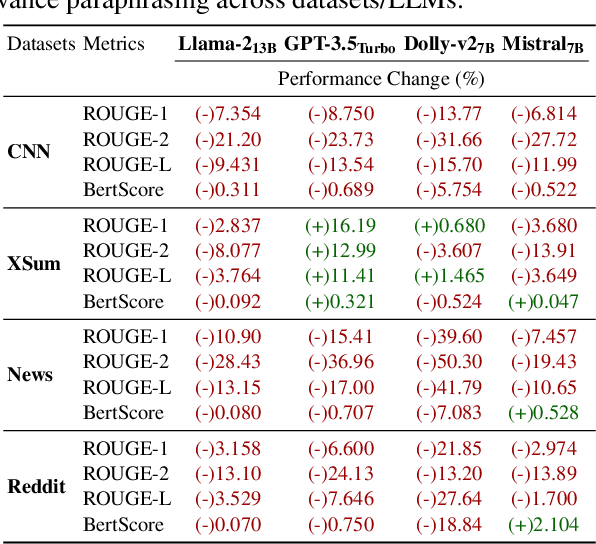
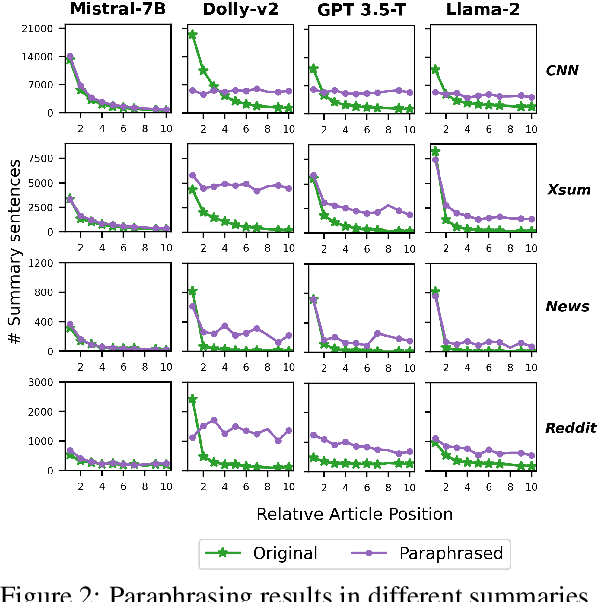
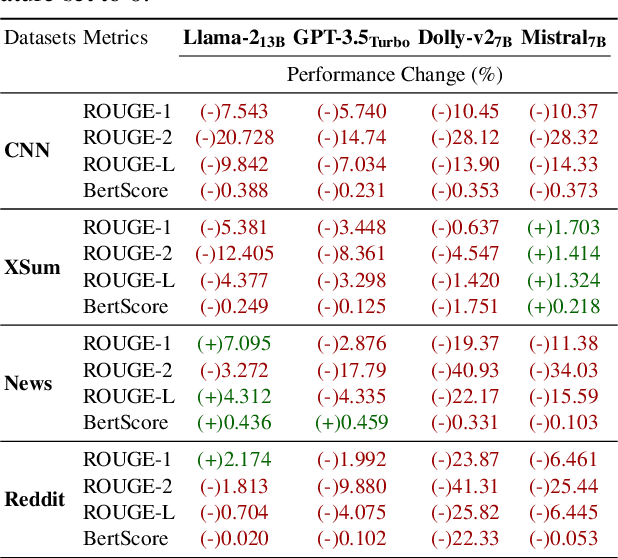
Abstract:Large Language Models (LLMs) have achieved state-of-the-art performance at zero-shot generation of abstractive summaries for given articles. However, little is known about the robustness of such a process of zero-shot summarization. To bridge this gap, we propose relevance paraphrasing, a simple strategy that can be used to measure the robustness of LLMs as summarizers. The relevance paraphrasing approach identifies the most relevant sentences that contribute to generating an ideal summary, and then paraphrases these inputs to obtain a minimally perturbed dataset. Then, by evaluating model performance for summarization on both the original and perturbed datasets, we can assess the LLM's one aspect of robustness. We conduct extensive experiments with relevance paraphrasing on 4 diverse datasets, as well as 4 LLMs of different sizes (GPT-3.5-Turbo, Llama-2-13B, Mistral-7B, and Dolly-v2-7B). Our results indicate that LLMs are not consistent summarizers for the minimally perturbed articles, necessitating further improvements.
Outlier Gradient Analysis: Efficiently Improving Deep Learning Model Performance via Hessian-Free Influence Functions
May 06, 2024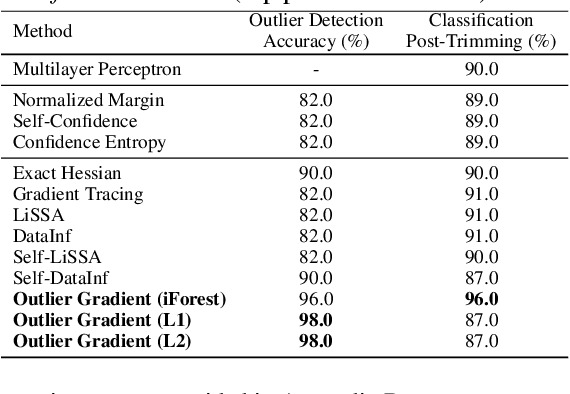
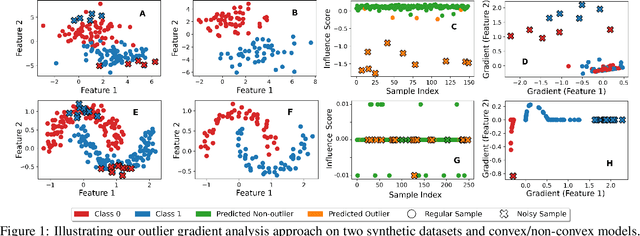
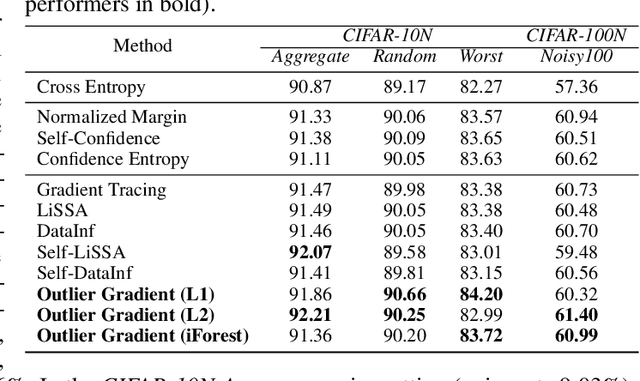

Abstract:Influence functions offer a robust framework for assessing the impact of each training data sample on model predictions, serving as a prominent tool in data-centric learning. Despite their widespread use in various tasks, the strong convexity assumption on the model and the computational cost associated with calculating the inverse of the Hessian matrix pose constraints, particularly when analyzing large deep models. This paper focuses on a classical data-centric scenario--trimming detrimental samples--and addresses both challenges within a unified framework. Specifically, we establish an equivalence transformation between identifying detrimental training samples via influence functions and outlier gradient detection. This transformation not only presents a straightforward and Hessian-free formulation but also provides profound insights into the role of the gradient in sample impact. Moreover, it relaxes the convexity assumption of influence functions, extending their applicability to non-convex deep models. Through systematic empirical evaluations, we first validate the correctness of our proposed outlier gradient analysis on synthetic datasets and then demonstrate its effectiveness in detecting mislabeled samples in vision models, selecting data samples for improving performance of transformer models for natural language processing, and identifying influential samples for fine-tuned Large Language Models.
Incentivizing News Consumption on Social Media Platforms Using Large Language Models and Realistic Bot Accounts
Mar 30, 2024
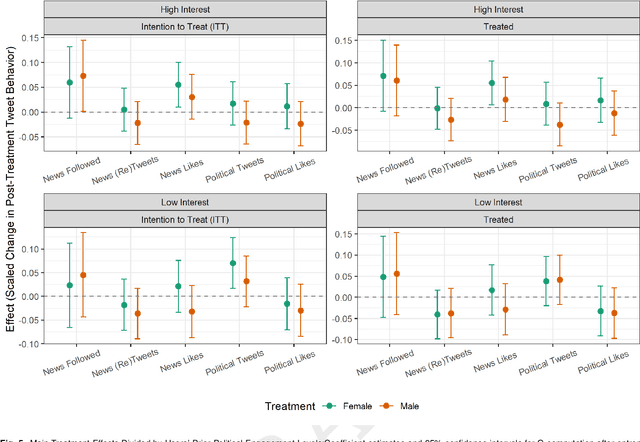
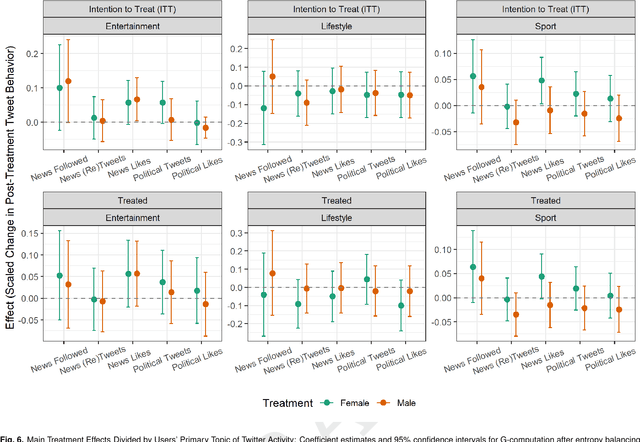
Abstract:Polarization, declining trust, and wavering support for democratic norms are pressing threats to U.S. democracy. Exposure to verified and quality news may lower individual susceptibility to these threats and make citizens more resilient to misinformation, populism, and hyperpartisan rhetoric. This project examines how to enhance users' exposure to and engagement with verified and ideologically balanced news in an ecologically valid setting. We rely on a large-scale two-week long field experiment (from 1/19/2023 to 2/3/2023) on 28,457 Twitter users. We created 28 bots utilizing GPT-2 that replied to users tweeting about sports, entertainment, or lifestyle with a contextual reply containing two hardcoded elements: a URL to the topic-relevant section of quality news organization and an encouragement to follow its Twitter account. To further test differential effects by gender of the bots, treated users were randomly assigned to receive responses by bots presented as female or male. We examine whether our over-time intervention enhances the following of news media organization, the sharing and the liking of news content and the tweeting about politics and the liking of political content. We find that the treated users followed more news accounts and the users in the female bot treatment were more likely to like news content than the control. Most of these results, however, were small in magnitude and confined to the already politically interested Twitter users, as indicated by their pre-treatment tweeting about politics. These findings have implications for social media and news organizations, and also offer direction for future work on how Large Language Models and other computational interventions can effectively enhance individual on-platform engagement with quality news and public affairs.
Revisiting Zero-Shot Abstractive Summarization in the Era of Large Language Models from the Perspective of Position Bias
Jan 03, 2024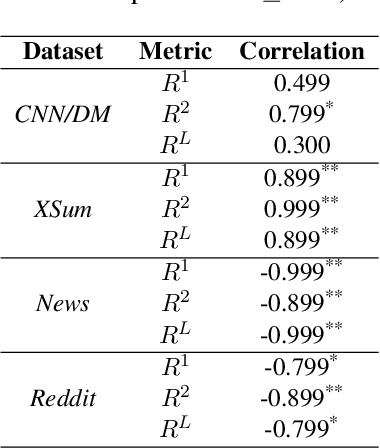
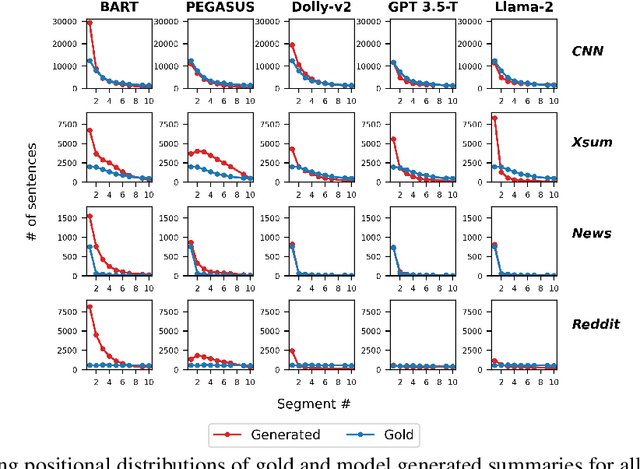
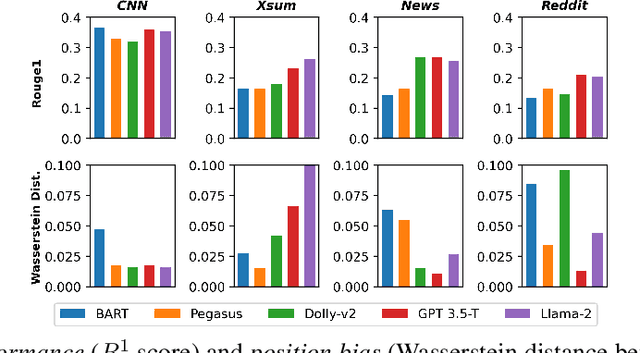
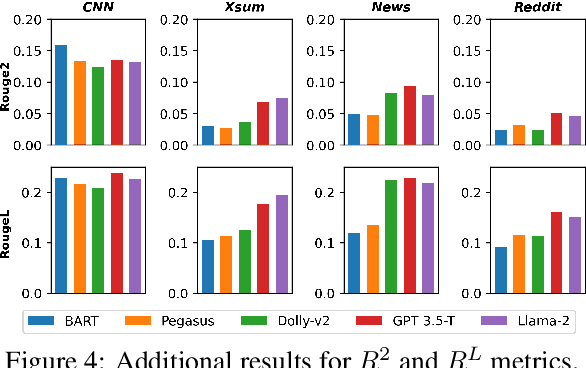
Abstract:We characterize and study zero-shot abstractive summarization in Large Language Models (LLMs) by measuring position bias, which we propose as a general formulation of the more restrictive lead bias phenomenon studied previously in the literature. Position bias captures the tendency of a model unfairly prioritizing information from certain parts of the input text over others, leading to undesirable behavior. Through numerous experiments on four diverse real-world datasets, we study position bias in multiple LLM models such as GPT 3.5-Turbo, Llama-2, and Dolly-v2, as well as state-of-the-art pretrained encoder-decoder abstractive summarization models such as Pegasus and BART. Our findings lead to novel insights and discussion on performance and position bias of models for zero-shot summarization tasks.
Robust Fair Clustering: A Novel Fairness Attack and Defense Framework
Oct 04, 2022
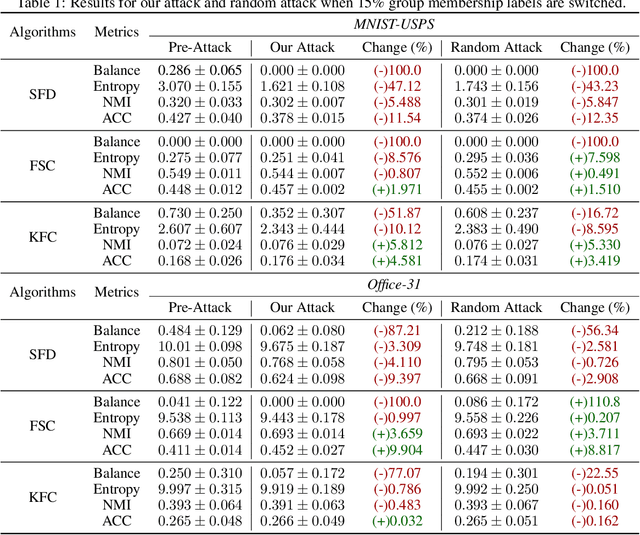

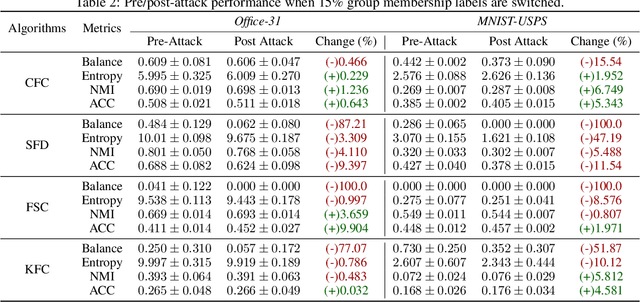
Abstract:Clustering algorithms are widely used in many societal resource allocation applications, such as loan approvals and candidate recruitment, among others, and hence, biased or unfair model outputs can adversely impact individuals that rely on these applications. To this end, many fair clustering approaches have been recently proposed to counteract this issue. Due to the potential for significant harm, it is essential to ensure that fair clustering algorithms provide consistently fair outputs even under adversarial influence. However, fair clustering algorithms have not been studied from an adversarial attack perspective. In contrast to previous research, we seek to bridge this gap and conduct a robustness analysis against fair clustering by proposing a novel black-box fairness attack. Through comprehensive experiments, we find that state-of-the-art models are highly susceptible to our attack as it can reduce their fairness performance significantly. Finally, we propose Consensus Fair Clustering (CFC), the first robust fair clustering approach that transforms consensus clustering into a fair graph partitioning problem, and iteratively learns to generate fair cluster outputs. Experimentally, we observe that CFC is highly robust to the proposed attack and is thus a truly robust fair clustering alternative.
On the Robustness of Deep Clustering Models: Adversarial Attacks and Defenses
Oct 04, 2022
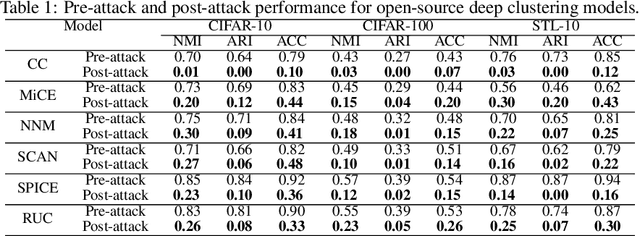

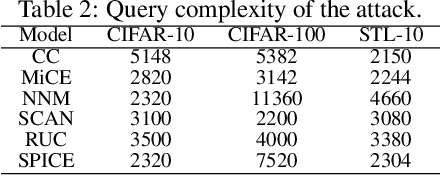
Abstract:Clustering models constitute a class of unsupervised machine learning methods which are used in a number of application pipelines, and play a vital role in modern data science. With recent advancements in deep learning -- deep clustering models have emerged as the current state-of-the-art over traditional clustering approaches, especially for high-dimensional image datasets. While traditional clustering approaches have been analyzed from a robustness perspective, no prior work has investigated adversarial attacks and robustness for deep clustering models in a principled manner. To bridge this gap, we propose a blackbox attack using Generative Adversarial Networks (GANs) where the adversary does not know which deep clustering model is being used, but can query it for outputs. We analyze our attack against multiple state-of-the-art deep clustering models and real-world datasets, and find that it is highly successful. We then employ some natural unsupervised defense approaches, but find that these are unable to mitigate our attack. Finally, we attack Face++, a production-level face clustering API service, and find that we can significantly reduce its performance as well. Through this work, we thus aim to motivate the need for truly robust deep clustering models.
Fairness Degrading Adversarial Attacks Against Clustering Algorithms
Oct 22, 2021
Abstract:Clustering algorithms are ubiquitous in modern data science pipelines, and are utilized in numerous fields ranging from biology to facility location. Due to their widespread use, especially in societal resource allocation problems, recent research has aimed at making clustering algorithms fair, with great success. Furthermore, it has also been shown that clustering algorithms, much like other machine learning algorithms, are susceptible to adversarial attacks where a malicious entity seeks to subvert the performance of the learning algorithm. However, despite these known vulnerabilities, there has been no research undertaken that investigates fairness degrading adversarial attacks for clustering. We seek to bridge this gap by formulating a generalized attack optimization problem aimed at worsening the group-level fairness of centroid-based clustering algorithms. As a first step, we propose a fairness degrading attack algorithm for k-median clustering that operates under a whitebox threat model -- where the clustering algorithm, fairness notion, and the input dataset are known to the adversary. We provide empirical results as well as theoretical analysis for our simple attack algorithm, and find that the addition of the generated adversarial samples can lead to significantly lower fairness values. In this manner, we aim to motivate fairness degrading adversarial attacks as a direction for future research in fair clustering.
 Add to Chrome
Add to Chrome Add to Firefox
Add to Firefox Add to Edge
Add to Edge